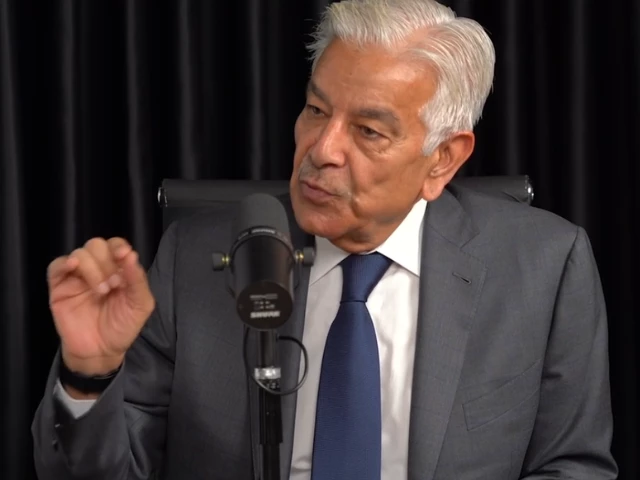Defense Minister Khawaja Asif has clarified that the recent defense agreement between Pakistan and Saudi Arabia is not linked to the ongoing regional tensions – especially Israel’s actions in Qatar – but is the result of years of sustained bilateral dialogue and cooperation.
In an exclusive interview with the British-American journalist Mehdi Hasan, Asif confirmed that the covenant was not a reaction to recent regional development.
“This agreement is not a reaction to what happened in Qatar,” he claimed. “It had been under negotiation for quite a long time. While its completion may have been accelerated, it was already in the offer,” he added.
Asif continued to elaborate on the long-standing relationship between Pakistan and Saudi Arabia and emphasized the continuation of a defense partnership dating from over five decades.
“We have had a military presence in Saudi Arabia for many years, which sometimes reached 4,000 to 5,000 troops. The relationship was a bit transactional, but now it has been formalized,” he said, emphasizing the sustained cooperation between the two nations.
Read: PM hails historical reaction to Indian aggression, requires peace and dialogue on the Unga session
When asked if the agreement involved Pakistan’s nuclear umbrella, Asif refused to discuss the matter. “This is a defense pact and such questions are not publicly discussed,” he replied, avoiding direct commitment to the subject.
Pakistan and Saudi Arabia signed a landmark strategically mutual defense agreement, stating that “any aggression against both country should be considered an aggression against both,” according to a joint statement.
The pact was signed during Prime Minister Shehbaz Sharif’s visit to Riyadh on invitation from Saudi Crown Prince and Prime Minister Mohammed bin Salman bin Abdulaziz Al Saud.
The interview also affected Pakistan’s domestic politics, in which Hasan questioned the minister about the treatment of former Prime Minister Imran Khan, who has been imprisoned since August 2023.
Despite international condemnation, including a UN expert panel that declared Khan’s detention “illegal”, the ASIF defended the government’s actions, although he did not give specific details of the legal justification.
When Asif answered the claims about former Prime Minister Imran Khan’s Twitter account, Asif replied by announcing that Khan is running the account of his prison cell.
Read: Indian official attached to murder plot, murder plans in Nepal or Pakistan, claims the US Court
However, Hasan pointed out that Asif had previously suggested that the account be run from India. In a sincere exchange opposite asif, “who then drives the account? What is the truth? Either he drives it from his cell, or he must at least identify who is behind it.”
On the question of the evidence that supports his claims, asif was reluctant to give details. “I can’t pass on the evidence,” he said. But when he was pressed on whether the claims were based on intelligence, he confirmed, “It is clear, it is based on intelligence. No one states it openly.”
The conversation then turned to wider geopolitical issues, such as Pakistan’s attitude towards Kashmir. Asif repeated Pakistan’s support for a potential referendum for Kashmiri-independence and maintained that the issue of self-determination for the Kashmiri people remains central to Pakistan’s foreign policy.
He approached the current relationship with the United States, he recognized a “transactional” dynamic with Washington and described the relationship as often “flirty”.
On the question of Pakistan’s relationship with China, Asif confirmed that China remains Pakistan’s prominent strategic partner. “They are reliable and they are our neighbor,” he said, emphasizing the crucial role that the bilateral relationship plays in Pakistan’s foreign policy view.



